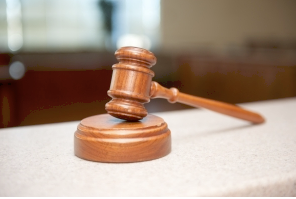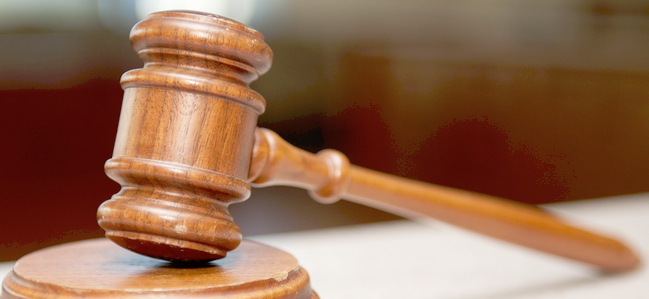Is Plagiarism a Strict Liability Issue?
 Strict liability is a legal standard that basically says a person is responsible for the results of their actions regardless of their culpability to those actions. Culpability, likewise is another legal concept that deals with whether a person purposely, knowingly recklessly or negligently committed the act.
Strict liability is a legal standard that basically says a person is responsible for the results of their actions regardless of their culpability to those actions. Culpability, likewise is another legal concept that deals with whether a person purposely, knowingly recklessly or negligently committed the act.
Basically, if a law has a standard of strict liability, whether it is a civil or a criminal matter, the intention or even the understanding of the person breaking the law doesn’t matter. If you speed on the highway, not seeing a speed limit sign doesn’t remove you from liability so long as you were operating the vehicle and exceeding the limit.
One common area that is strict liability is copyright. This means that, if someone woke up tomorrow and had no idea copyright law existed and began selling illegally copied DVDs, they would be just as liable as someone who was fully aware of the law and broke it with every intention of doing so.
But what about plagiarism? Is plagiarism a strict liability issue or does the mindset of the person committing the act matter? While there is plenty of overlap between plagiarism and copyright to make the comparison obvious, that doesn’t necessarily make the question any easier, especially when one considers that, for all they have in common, plagiarism and copyright also have one very significant difference.
The Ethical Dilemma
It’s easy to think of copyright as a strict liability matter because it is. The law is written in such a way that the culpability of the person who commits an infringement does not alter their liability.
However, is easy to do so because copyright is a legal matter and the ethics and intention of a person can and often is separate from their legal standing. There are many unethical acts that are not outright illegal and many legal acts that are widely consider not unethical.
Plagiarism, outside of when it amounts to copyright infringement, is purely an ethical issue. If we’re going to treat it as an ethical issue, then the ethics of the person involved must be what’s at stake. If a person intentionally and maliciously cheated or tried to take some shortcut, that must be worse than someone who made a simple mistake or simply was unaware of the rules of attribution.
But is plagiarism really just an ethical issue? Visit any college or even many publications and you’ll find tribunals and boards that function almost exactly like a court does, often with prosecutors, judges and juries. Their findings can and often are destructive to careers and lives, just like a regular court.
As someone who has testified before several of these boards, these processes behave much more like an extrajudicial court system than it does anything else. Though they may call themselves ethics boards, they act like internal legal systems.
While this may be necessary to ensure the accused get a fair chance to be heard, it means that we can no longer talk about plagiarism as purely an ethical matter even if it isn’t a civil or criminal one either. That’s because, at least in many cases, it is subject to a legal system, albeit a different one than copyright.
Still, with the overlap between the two, it makes sense to draw a comparison and see what strict liability in copyright can teach us about strict liability in plagiarism matters.
Accidental Plagiarism and Accidental Infringement
Copyright is a strict liability matter because, under the law, anyone who violates the rights of the copyright holder is an infringer, regardless of their state of mind. This means that, while there is such a thing as accidental infringement, it doesn’t remove liability.
If you read most school ethics codes and most guidelines at newspapers or other publications, they actually read much like copyright law on the issue of plagiarism. Out of the hundreds of policies I’ve looked, none have mentioned words like “knowingly” or “intentionally” when discussing plagiarism.
But while copyright may be strict liability, the issue of intent does actually come up in copyright cases. For example, if a copyright infringer is found to have not acted willfully, their damages can be lowered as far down as $750 per infringement. Furthermore, if the infringer is found to have acted in good faith and to have no reason to believe that their acts were an infringement, those damages can be reduced all the way down to $200, a far cry from the maximum of $150,000 that can be won in cases of willful infringement.
So while culpability doesn’t determine whether or not one is liable for copyright infringement, it does have a great deal of bearing on the amount of damages one has to pay for that liability.
In that regard, plagiarism could easily work the same way. While a plagiarist plagiarized regardless of whether or not they intended to, the punishment or reprimand they face can and likely should be weighed against their culpability.
But even that approach is fraught with difficulties. For one, it can be difficult to determine whether a person knowingly plagiarized or not. This makes burden of proof a difficult question, namely whether the suspected plagiarist have to prove they weren’t culpable or does the person making the claim have to prove that they were.
Different tribunals and organizations approach these problems in different ways (if at all). But what it boils down to is simple, once plagiarism is proved, schools publications and institutions often vary wildly in how they hand down punishment, often within the same institutions.
This is because, much as with copyright, while plagiarism may be a strict liability issue, it’s not necessarily a strict liability punishment. When you then factor in all of the ways different schools and institutions handle plagiarism, it’s easy to see why two nearly identical cases of plagiarism rarely receive nearly identical punishments.
This makes the discussion over strict liability that much more important and that much more difficult to have.
Bottom Line
Is plagiarism a strict liability issue? It almost certainly is. Murder is not murder if you didn’t intend to commit it (or at least bring bodily harm). However, a plagiarism is still a plagiarism even if the person who did it had no intention of plagiarizing.
But like many acts that have strict liability, including copyright, the punishments for the plagiarism have a lot of leeway and the intentions of the accused are almost always weighed in to some degree.
One exception to that rule is the AMBeR Benchmark Plagiarism Tariff, a proposed system that aims at standardizing plagiarism penalties. It makes no mention of intention and, instead, only weights the number of prior infractions, the amount plagiarized and the nature of the assignment.
However, that speaks more to the challenge of crafting a standardized penalty system for plagiarism. To truly standardize plagiarism enforcement, plagiarism must be not just a strict liability issue, but have punishments that ignore or limit the impact of culpability.
Dealing with plagiarism is going to be a balancing act between standardizing punishments and still having enough leeway to handle mitigating circumstances. There’s no easy answer to those challenges but copyright and its handling of strict liability can provide some guidance, if schools and other institutions are willing to listen.
Want to Reuse or Republish this Content?
If you want to feature this article in your site, classroom or elsewhere, just let us know! We usually grant permission within 24 hours.
